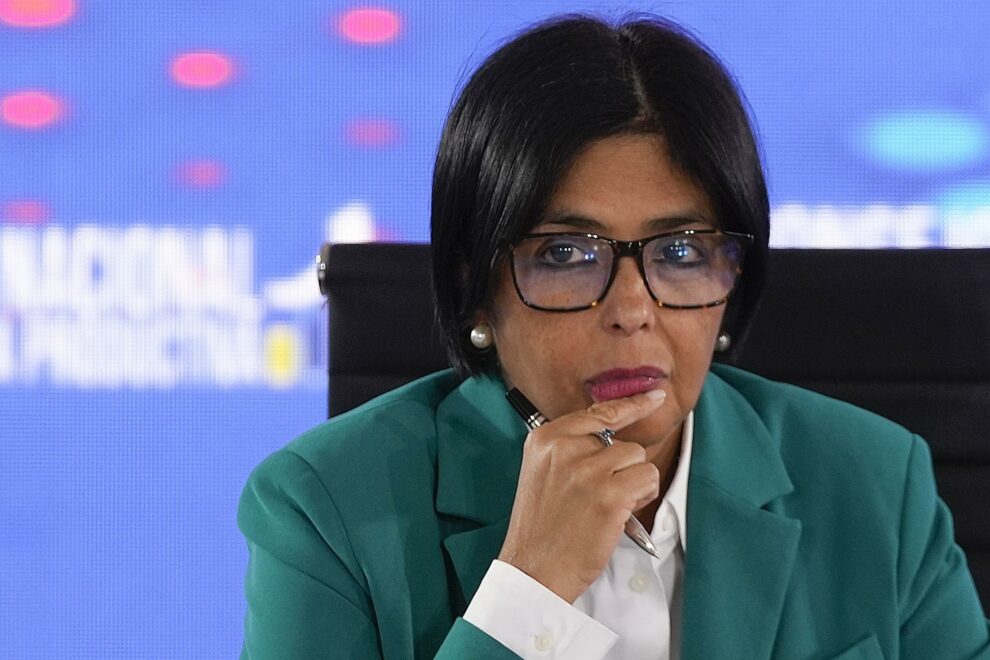Venezuela denounced U.S. sanctions as “extortion and blackmail” at an international forum Thursday, as the UN Human Rights Council (HRC) adopted on the same day a new resolution condemning the negative impacts on human rights of unilateral coercive measures (UCM).
“It is a system of sanctions … that sought to asphyxiate the Venezuelan economy to pressure the Venezuelan people to change their political course,” Venezuelan Vice President Delcy Rodriguez said during her speech at the international forum of the sixth Russian Energy Week in Moscow.
“The 930 unilateral coercive measures, that are illicit and illegitimate, are still intact against Venezuela,” said Rodriguez.
She argued that the sanctions have caused extreme damage to the Venezuelan oil industry, which historically generates the highest percentage of foreign currency for the South American country.
“The impact on the Venezuelan economy is brutal,” she said. Although since 2021, the country “has been experiencing a process of economic recovery and growth.”
Rodriguez said that the “geo-strategic” targets of U.S. sanctions have been oil exporters such as Iran, Russia, and Venezuela.
She warned that the strategy of sanctions plus wars has become the “central axis” of U.S. foreign policy.
Also on Thursday, Venezuela’s government welcomed a new resolution by the UN Human Rights Council condemning unilateral coercive measures (UCM) against countries.
“We celebrate that the United Nations Human Rights Council approved a new resolution condemning Unilateral Coercive Measures,” Venezuelan Foreign Affairs Minister Yvan Gil said on social media platform X, formerly Twitter.
The resolution adopted at the 54th session of HRC is “a new victory for Bolivarian Peace Diplomacy and International Law,” Gil added.
Sanctions unilaterally imposed on countries are “an instrument of violation of people’s fundamental rights,” said Gil.
Hector Constant Rosales, permanent representative of Venezuela to the United Nations Office at Geneva, said the resolution adopted Thursday is a “new victory for International Law.”
The Resolution A/HRC/54/L.26 “Human rights and unilateral coercive measures” was submitted by Azerbaijan on behalf of the Movement of Non-Aligned Countries and was adopted by the HRC with 32 votes in favor, 13 against, and 2 abstentions.
The Resolution also extends for a period of three years the mandate of the Special Rapporteur on the negative impact of unilateral coercive measures on the enjoyment of human rights.










